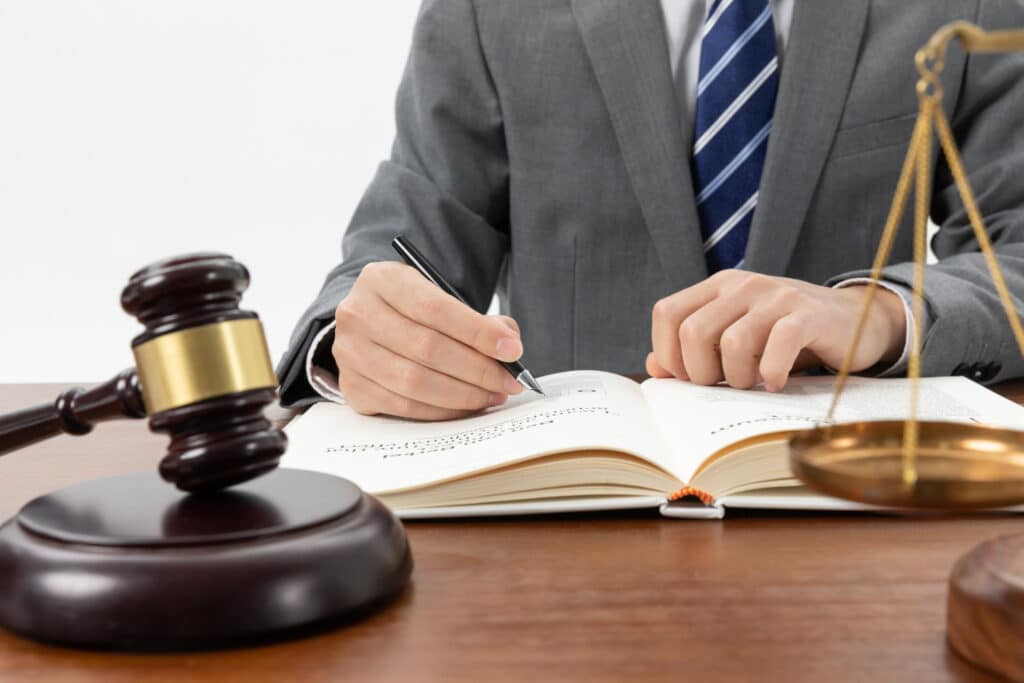
What Can I Do if Someone Makes False Allegations Against Me?
Being wrongly accused is a big issue in our legal system. It’s hurtful and embarrassing. Fabricated claims can have profound implications for everyone involved.
We find these claims often during disputes over child custody, property settlements, divorce, or domestic violence. It’s easy to get overwhelmed and emotional. But if they aren’t dealt with properly, they can sway case outcomes. Understand why they occur and the potential consequences.
Civil law and criminal law — the key differences
This helps you decide if Ferrall & Co is the right firm for your matter.
Disputes between people businesses or organisations
These matters aim to resolve problems or recover loss — not to punish someone.
- Property or boundary disagreements
- Contract and consumer issues
- Workplace or employment disputes
- Body corporate or neighbour concerns
The State alleges an offence has been committed
Criminal charges can affect your record employment travel and reputation. Getting help early matters.
- Assault and domestic violence offences
- Theft burglary robbery
- Fraud and dishonesty offences
- Drug possession supply related charges
General information only not legal advice. For guidance on your situation speak with a lawyer.
Key takeaways
- False accusations are untrue claims made against a party to a legal dispute.
- False accusations can take many forms.
- People make false accusations for many different reasons.
- False accusations during custody cases may involve various actions.
- False accusations of domestic violence can include faked injuries.
- Stay calm and gather evidence with your lawyer so you can file a response.
- A false accusation can lead to criminal penalties and family law consequences.

What are false accusations?
False accusations are incorrect statements about a party’s culpability in a legal matter. We wouldn’t call them lies because they aren’t necessarily intentional. Whether they’re malicious or not, they can cause a lot of damage. Such accusations can take different forms.
Child Abuse or Neglect
Falsely accusing a spouse of abusing a child is serious. You can significantly impact custody and visitation rights. You may even affect your contact with your children. This type of false allegation can lead to legal consequences and alter the dynamics between the parents.
Child abuse covers many different factors, including:
- Continually using shaming or belittling language.
- Constantly yelling, bullying, or threatening.
- Controlling children through fear and threats of violence.
- Unpredictability, so the child won’t know what will trigger aggression.
Domestic Violence
Claims of physical, emotional, or sexual assault allegations, that may not have occurred, can significantly impact a person’s reputation. These false accusations can lead to restraining orders and influence custody decisions in court.
Domestic or family violence can include:
- Harming children or a partner through physical violence.
- Engaging in unwanted sexual contact.
- Preventing a partner’s financial or social independence.
Financial Deception
Allegations about hiding assets, misrepresenting financial status, or other forms of financial dishonesty aimed at influencing property settlements or spousal support.
Financial deception can be alleged in different ways, such as:
- Transferring money or other assets to a third party.
- Investing money in difficult-to-value unique items.
- Reducing the asset pool’s value through reckless spending.
Parental Alienation
Claims that one parent deliberately damages the children’s relationship with the other parent. These claims can affect custody arrangements.
There are various ways parental alienation can manifest:
- Speaking negatively about a parent’s intelligence or abilities as a parent.
- Preventing visitation by missing changeovers or cancelling plans.
- Undermining the other parent’s authority by encouraging the child to ignore their directions.
- Inducing the child to feel guilty about having a good relationship with the other parent.
Substance Abuse
False allegations of drug or alcohol addiction can be used to question a person’s ability to provide a safe and stable environment for their children. These accusations can suggest a crime has been committed, potentially impacting the Court’s decisions in custody matters.
This can include accusations of:
- Excessive alcohol consumption.
- Abuse of prescription medication.
- Use of illicit substances.
Mental Health
Some people make false claims about a party’s mental health to challenge their parenting or decision-making. Allegations against a parent’s mental health may include:
- Misrepresenting normal stress responses exhibited after a divorce.
- Reporting erratic behaviour like sudden mood swings and paranoia.
- Claiming the parent has personality disorders, such as narcissism, which affect their parenting.
False allegations are a serious offence and have serious consequences. They can impact the Court’s decisions on child custody, property division, and other aspects of family law.
Discover: What Is Parental Alienation?

Why make a false statement?
We sympathise with the emotions felt in a family law dispute. Humans make risky decisions in stressful situations. Consider the psychological, strategic, and contextual factors. As emotional beings, we’re susceptible to many things. Here are some common reasons.
Gain Legal Advantage
In custody battles or divorce proceedings, one party may make false statements or accusations, intending to gain the upper hand.
They may seek to damage the other party’s reputation by presenting them as having committed a crime in order to gain custody of children, secure a more significant portion of the property, or obtain favourable financial support arrangements.
Potential scenario
One parent transfers cash and other assets to a friend with the intention of reclaiming them after a property settlement. By reducing their access to financial resources, they then try to make an allegation that they have significant future needs that warrant increased spousal maintenance.
Misunderstandings or Misinterpretations
False accusations aren’t always malicious. Parties can make genuine mistakes in high-stress situations. This doesn’t excuse spreading misinformation. These are situations where mediation can help. Take every opportunity to clear up misunderstandings without escalation.
Potential scenario
Darren reminds his son that he’s due to stay with his mum soon. The son doesn’t want to go. He asks him why. His son doesn’t want to go into it. Darren worries that his son’s being mistreated. He confronts his former spouse. She angrily dismisses the accusation. Darren’s suspicions grow. He raises his concerns in court. Mandated counselling sessions reveal that the child struggled with unrelated school issues.
Influence from Others
Many people listen to friends and family during legal proceedings.
Potential scenario
Consider this fictional scenario between Sarah and her friend:
“So, I found a new laptop that’d be great for work. But John said no.”
“Why?”
“He said we have to agree to big purchases first.”
“That’s not right, Sarah. He shouldn’t control you like that.”
Sarah and John decide to divorce. Sarah reflects on that conversation. She does some research and finds that financial control may be considered a form of abuse. Her friend volunteers to act as a witness. Sarah raises the issue in court. John successfully defends the assertion by producing evidence that they’d agreed to discuss purchases over a certain amount.
Lack of Legal Knowledge
Some individuals may not appreciate the legal implications of making a false allegation. A person may throw out accusations without realising the seriousness or potential consequences, such as being required to present evidence in court or facing an investigation by the police. These false allegations can significantly impact the hearing and legal process.
Potential scenario
Sam and Anna are at odds over their nine-year-old daughter’s bedtime. Anna wants her in bed by 8.00pm. Sam regularly let’s his daughter stay up until after 9.00pm. During divorce, Anna claims Sam was being neglectful. The Court wants evidence of the impact of this neglect, such as deteriorating school grades. The Court isn’t convinced. It decides to consider her inappropriate accusation when deciding on parenting arrangements due to its seriousness.

False accusations during child custody cases
Child custody matters should centre around the best interests of the child. However, during emotional cases, a person may act out of spite for their ex-spouse by making false allegations. This could involve filing complaints with the police or presenting misleading information in court to undermine the other parent. Here’s what that can look like.
Falsifying evidence
A person may plant false evidence, such as manufacturing fake medical records or doctored photographs depicting abuse. These false allegations may then be used to make a complaint to the child protective services authority, involve the police, or be presented in court.
This false allegation could then be used as the basis for a protective order, restricting the targeted parent from accessing their child.
Coaching and alienation
A common tactic is for one parent to try and turn the child against their spouse. The object of this behaviour is to alienate the parent. The offending parent can try many methods.
Criticisms
A parent may criticise their former partner in front of their child. This can involve making allegations of misconduct, blaming them for various issues, and questioning their character. Many parents engage in this behaviour without realising it’s inappropriate. These situations can often be resolved with family dispute resolution.
Emotional manipulation
A particularly harmful behaviour is manipulating a child’s emotions to undermine their respect and trust for the other parent. Children can be guilt-tripped for wanting to spend time with the other parent, creating an emotional dependency on one parent.
A party could also make an allegation that the other parent engages in harmful behaviour, which they claim causes the child to distrust them.
Coaching
Coaching can have serious psychological and legal consequences. One parent may coach the child to make allegations against the other parent involving abuse or other misconduct. Dealing with coaching concerns is a delicate process that must avoid causing the child even more stress. There are options you can try, such as:
- Mental health professionals. Approach a counsellor or psychologist to meet with the child. If they believe coaching has occurred, they may be able to offer their expertise in court. It’s crucial that they have specific experience in coaching issues. Not all mental health professionals are equipped to assist.
- Parenting coordinator. A parenting coordinator can help parents implement their childcare arrangements. If one parent has concerns about coaching, the coordinator may be able to facilitate a discussion about these worries.
- Take it to court. If coaching is identified by a professional, the judge can implement different parenting orders. The child and parenting found to be coaching may be required to attend counselling. It’s also possible that the parent is placed on supervised visitation

False Allegation of domestic violence
Allegations of domestic and family violence often come into play during family law proceedings. For example, a judge may need to evaluate the credibility of such claims and determine their impact on custody and other legal decisions.
If faced with false domestic violence claims, it’s crucial to seek legal advice to ensure that your lawyer can present evidence and argue your position effectively. False allegations can also involve criminal implications if the accusations are proven to be untrue, potentially leading to legal consequences for the accuser.
Fabricated evidence
In some cases, a party may inflict injuries upon themselves to falsely accuse their spouse of domestic violence. They might also recruit friends or family to provide false testimony and make misleading statements in support of these fabricated claims.
Such actions can constitute a serious crime and significantly impact legal proceedings, potentially leading to severe consequences for the accuser if their domestic violence claims are proven to be false. The falsely accused party may also face significant challenges in defending their reputation and legal rights.
Impact on Family Court Proceedings
Making false domestic violence claims can have serious implications in Family Court cases. If you’re involved in a custody battle, being falsely accused can significantly affect the Court’s perception of your case. This may result in a loss of parental access and even legal repercussions. False allegations in property settlements
Parties to a property settlement can often be motivated to make false accusations during a property settlement. Reasons for doing so can include gaining an advantage that increases their share of a property division or restricting their ex-partner’s access to their rightful entitlement. Here are some of the false claims that can be made in property matters.
Hiding assets
Parties are required to fully disclose their financial position to enable an accurate division of property. One party may accuse the other of hiding assets. Accusations could include the existence of secret bank accounts, undisclosed investments, or deceptively transferring assets to close associates in order to prevent their inclusion in the settlement.
Reckless behaviour
The Court will consider if a party’s conduct has contributed to the degradation of a property pool’s net value. This could include losses incurred through gambling or spending exorbitant amounts on luxurious items or property. A party may also allege that their ex-spouse’s spending habits, along with any false domestic violence claims, have unduly reduced the value of the property pool for the domestic violence charges.
Misrepresenting needs
One spouse may make false domestic violence claims or false claims about their future needs. For example, they might assert difficulties in finding future employment or allege that health issues or other impediments are severely impacting their ability to support themselves after a divorce. These false claims are aimed at convincing the Court to make advantageous adjustments based on their purported future needs or to secure a greater amount of financial support.
Being falsely accused or facing a false allegation in Family Court proceedings can be a hurtful and confusing experience. Here are some vital steps to deal with the situation.

What to do when falsely accused
There are several things you should do to ensure that you have the best chance of rebutting false accusations.
Stay calm
False claims, including false domestic violence claims, can be deeply distressing. You’ll likely feel angry and frustrated. It’s important to remain calm and address the issue logically. A hasty response could negatively impact your case. Any communication with your ex-spouse should be managed with legal assistance.
What you must avoid is engaging in hostile interactions with your former partner. Nothing good can come of rising to any taunts or additional accusations made against you. Instead, keep detailed records of any communication you receive to bolster your case.
Seek legal advice
Don’t approach false domestic violence claims alone. Your legal representation can handle the situation. Follow the law firm’s guidance, especially if there’s a police investigation into the matter.
Maintain full and honest communication with your lawyer. It’s crucial that they are able to effectively track down any relevant supporting evidence.
Follow any court orders
It’s important not to go against any existing orders. We understand that it is difficult and frustrating to deal with a false report being made against you by an alleged victim. However, the last thing you want to do is draw the ire of the Court while facing false accusations.
Respond to the accusation
If your former partner has made a false domestic violence claim against you, respond as quickly as possible. With the help of your lawyer, draft a written statement denying all claims being made against you.
Compile evidence
Gather evidence for your case, such as the following.
Documentary evidence
- Text messages.
- Emails.
- Photographs.
- Social media posts.
This evidence could show cooperative dialogue that speaks against allegations of family violence. They may also suggest that there are ulterior motives to the accusations.
Witnesses
- Co-workers.
- Friends.
- Family members.
Obtain testimony from witnesses who can corroborate your side of the story. False allegations can undermine the experiences of true victims and may lead to an interim order affecting your rights, so it’s crucial to act swiftly and effectively. If you know of anyone familiar with the matter, get their testimony recorded in an affidavit.
With the help of your lawyer, you can submit an affidavit to the local court proceedings regarding the false domestic violence claims, along with your supporting evidence, to prove that the claims are unfounded and that you have not been found guilty of the allegations.
Independent records
- Police reports.
- Medical records.
- Family reports.
Police involvement that didn’t result in adverse action against you can contradict accusations of violence. Medical records that don’t corroborate the case against you can be very important. If you can point to family reports that detail positive family relationships, it’s more difficult to allege domestic violence.

Consequences of false accusations
False accusations are taken very seriously by the Court. Family law and the Crimes Act both have provisions for false allegations. The Family Court can punish the false accuser differently depending on the issues in family law cases.
Child custody
In child custody cases, the Court may find these actions evidence that the accuser isn’t acting in their child’s best interests. This might also suggest they’re unable to co-parent effectively. This could affect custody arrangements. For example, the Court process may adjust visitation to allow the aggrieved parent more time with the child. If the false claims came from the parent with primary caring responsibilities, physical custody may fall to the other parent or, other person’s legal costs. The falsely accused parent may also gain greater responsibility in making major decisions over the child.
The court may order the false accuser to attend parental counselling sessions. These sessions aim to educate the parent on their proper role in the co-parenting relationship. They must understand how their misconduct negatively affects their child.
Property settlements
The Court may adjust the settlement terms in property settlements to impact the accuser’s entitlement, especially if the party being accused has proven guilty. The party being falsely accused may receive a greater share of the property pool to compensate for the false allegations. The false accuser may also be required to provide more spousal maintenance if their deception negatively influences the amount set down in a maintenance order.

What the Law Says
There are different laws that are relevant to false allegations in family law that may have implications in criminal law. The Family Law Act and the Crimes Act both contain clauses concerning false accusations.
Regarding false accusations, the Criminal Code Act 1899 states:
Any person who conspires with another to charge any person or cause any person to be charged with any offence, whether alleged to have been committed in Queensland, or elsewhere, knowing that such person is innocent of the alleged offence, or not believing the person to be guilty of the alleged offence, is guilty of a crime.
This relates to actions by the offending party that expose their former partner to a police investigation. Such actions may include false allegations of domestic violence. The offender may be liable for imprisonment of 7 to 14 years. A criminal defence lawyer can assist with your legal support.
The Family Law Act also mentions repercussions for false allegations. If a party falsely accuses another party to a family law matter, the accuser will be required to cover the other person’s legal representation costs.
Non-denigration order
The are ways that an accused person can seek justice and deal with false accusations. A common mechanism is a non-denigration order. Often, a parent is concerned that their former partner may speak disparagingly about them to their child. To combat this, the Court can include a provision in a parenting order that parties must not denigrate the other parent in front of their child.
Perjury
Anyone who gives false statements under oath in a judicial proceeding is guilty of perjury. This could be done in an affidavit. It’s a criminal offence in Australia. Perjury isn’t uncommon in family law matters. However, it can be difficult to prove, and perjury convictions are rare.
The Court understands that family law proceedings are emotionally stressful. A lot of things may be said. It’s hard to determine the intent behind certain statements.
Proving perjury
Perjury requires clear evidence that the statements are false, and the party who made the statements knew them to be false. However, it is a defence to perjury that the party honestly believed the statement to be true and had simply made a reasonable mistake. You can begin by working with a legal professional to demonstrate an allegation is false based on inconsistencies with documented evidence.
Defamation
Defamation refers to a published statement that harms an individual’s reputation in the eyes of others. For the purposes of defamation, publishing simply means making the statement available to a third party. Defamation suits tend to be uncommon in family law issues. However, there are cases where defamation is relevant.
The burden is on the party that made the statement to prove that it was true. Truth is an absolute defence to defamation. If they cannot prove the truth of the publication, they may be vulnerable to a defamation claim.
One sensitive area where defamatory statements can be made involves accusations of domestic violence or sexual abuse. Here’s a case study.
Dabrowski v Greeuw
In 2012, Robyn Greeuw posted the following on Facebook:
Separated from Miro Dabrowski after 18 years of suffering domestic violence and domestic abuse. Now fighting the system to keep my children safe.
Miro Dabrowski, a schoolteacher and Ms Greeuw’s estranged husband, was made aware of the post by his brother. Four other witnesses testified that they had read the post. One witness who went on a date with the plaintiff saw the post and was shocked and upset by the allegation.
Mr Dabrowski filed a defamation claim. The defendant insisted she didn’t realise the post had been published, which the judge rejected. The judge found the defendant imputed the following:
- The plaintiff subjected Ms Greeuw to domestic violence for 18 years.
- The plaintiff abused Ms Greeuw for 18 years.
- The plaintiff’s children aren’t safe around him.
As a civil proceeding, defamation is governed by the ‘balance of probabilities’ standard rather than the criminal standard of ‘beyond a reasonable doubt’. However, the defendant didn’t prove the truth of her post to the Court’s satisfaction. She was ordered to pay $12,500 to the plaintiff.

How can we help?
Rowena and her team were absolutely amazing and went above and beyond for me and my daughter. They sorted out my family matter in a very timely manner and very well priced. I would not go past this team if you're looking for someone that fights for you. She let me have a voice when I really needed it.
- Kayla McGrath
Clients facing false accusations have particular needs:
- Compassion for their situation.
- Dedication to correcting the record.
- A relentless pursuit of the truth.
Our team works to ensure your name is cleared. That involves gathering sufficient evidence and appearing in court to argue your case. You don’t need to bankrupt yourself to access good representation.
Why Choose a Caloundra Family Lawyer
Working with a Caloundra family lawyer gives you the benefit of local knowledge and practical experience with Sunshine Coast courts. Ferrall and Co Lawyers understand the legal issues and challenges that families in this region face.
Our team has helped many local clients defend against false allegations and achieve positive outcomes in parenting cases. We are familiar with the local court system and work closely with trusted Sunshine Coast professionals.
As a local firm, we offer personal service, prompt communication, and advice tailored to your situation. Ferrall and Co Lawyers are committed to protecting your rights and supporting Sunshine Coast families every step of the way.
Ready for personal legal advice
False accusations in family law proceedings can carry serious repercussions. They’re often motivated by emotional conflict or strategic advantage. These claims may impact custody and property settlements.
You need calm legal counsel and evidence. There may be legal outcomes or potential criminal charges. The accuser may have visitation rights or property entitlements reduced.
If you think you have been the victim of a false accusation, contact us today for a no-obligation consultation.
Frequently asked questions
What should I do if someone makes false allegations against me in family law?
Remain calm, document every interaction, gather evidence, and seek immediate legal advice. Avoid direct confrontation and let your lawyer guide your response. Courts take false allegations seriously and will assess all evidence.
Can a parent lose custody for making false accusations?
Yes, if the court finds that a parent deliberately made false accusations, it can impact their credibility and potentially result in a change to custody or parenting arrangements. Each case is assessed on its facts under the Family Law Act.
What steps should I take if someone files a false police report against me?
Do not contact the accuser. Collect any evidence proving your innocence, inform your lawyer promptly, and cooperate with authorities. False police reports are a criminal offence and can affect family law proceedings.
How does Ferrall & Co Lawyers help clients facing false accusations in Caloundra?
We provide expert legal advice, help gather and present evidence, represent you in court, and protect your rights throughout the family law process. Our local experience in Caloundra and the Sunshine Coast ensures tailored support.
What are the legal consequences for making false allegations in family law?
Making false allegations can result in court sanctions, adverse custody decisions, and even criminal charges. The court prioritises the best interests of the child and the integrity of the legal process.





